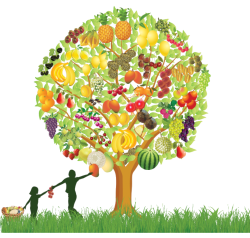You are : Fruit arboriculture workshop
Fruit arboriculture workshop

WHY CREATE FRUIT ARBORICULTURE WORKSHOPS?
Population has been turning away from fruits for several years due to their cost and declining taste quality. Indeed, many fruit productions are far from consumption areas, resulting in early harvesting and compromising the fruits' flavor and nutritional value. Additionally, the carbon footprint is increased by long-distance transportation. The poorest populations, especially children, lack access to fruits, making them vulnerable to malnutrition.
Malnutrition is a global issue affecting all countries. The United Nations estimates that one in nine people suffers from hunger, while one in three is overweight or obese.
Malnutrition is one of the most serious public health problems worldwide, particularly in developing countries. It predominantly affects infants and young children, but can also be present in older children and adults. Infants and children have higher nutritional needs due to their growth requirements. This situation leads to high mortality rates, severe consequences such as stunted growth, and can even contribute to mental impairments.
PRESENTATION OF THE WORKSHOP
This workshop consists of four main stages:
The first stage involves public consultation and information sessions, followed by training sessions for volunteers.
The second stage focuses on fruit tree planting and the management of arboricultural practices, promoting permaculture methods and responsible irrigation. The aim is to educate populations about new, nature-friendly agricultural techniques. At this stage, the workshop will organize an initial distribution of fruit tree saplings for individuals to plant in their own locations.
The third stage encompasses fruit harvesting and distribution channels. The objective is to train populations in proper fruit harvesting methods, enabling them to identify fruits suitable for consumption.
Training on various fruit preservation methods (refrigeration, canning, freezing, drying, etc.) will be provided.
The fourth part involves fruit tree reproduction. It aims to establish a fruit tree nursery to anticipate losses due to climatic hazards and assist the most vulnerable populations in planting fruit trees in their gardens.
For populations without access to personal gardens, a community space will be arranged in partnership with local authorities.
ECONOMIC MODEL
An online and local fruit tree sponsorship campaign will be launched, allowing people to sponsor a tree for 5 euros (5.65$). This amount will be used to purchase, plant, and maintain the trees. For populations without land, the sponsored trees will be planted on a plot provided by the association. This enables individuals to care for the trees and freely harvest and consume the fruits.
Thirty percent of the harvested fruits will be sold to cover equipment maintenance and provide necessary supplies for volunteers and facilitators. This revenue will sustain the workshop's expenses. Seventy percent of the fruits will be distributed to impoverished populations.
Thirty percent of the saplings will be sold to finance land rental or purchase, allowing vulnerable populations without land to plant fruit trees or even start their own businesses. This model is based on business nurseries or community gardens, depending on the country. Seventy percent of reproduced saplings will be distributed free of charge to vulnerable populations.
Currently, this workshop is implemented in Rwanda. You can learn more about this workshop in the project.
 LES ATELIERS OUVERTS
LES ATELIERS OUVERTS